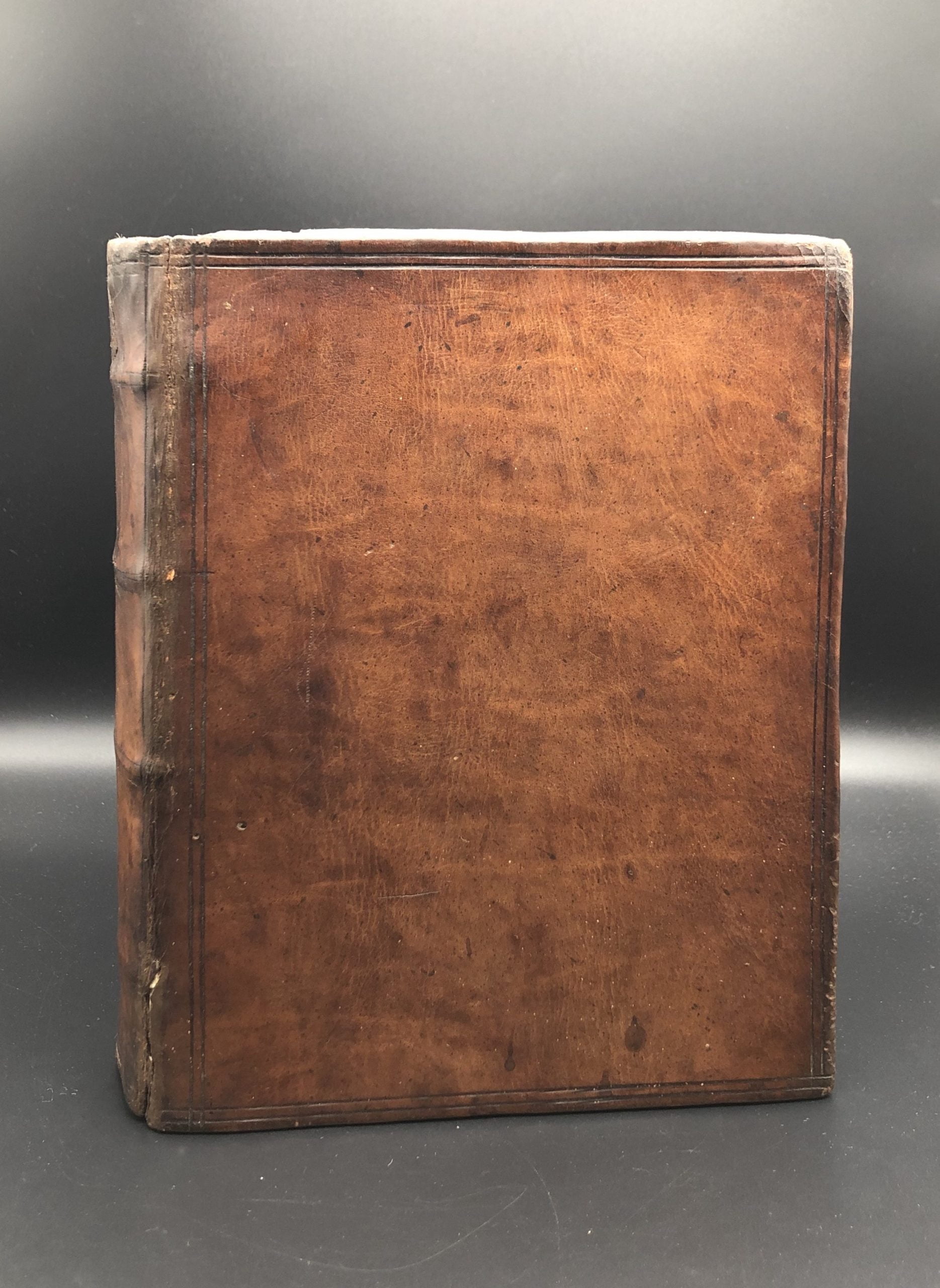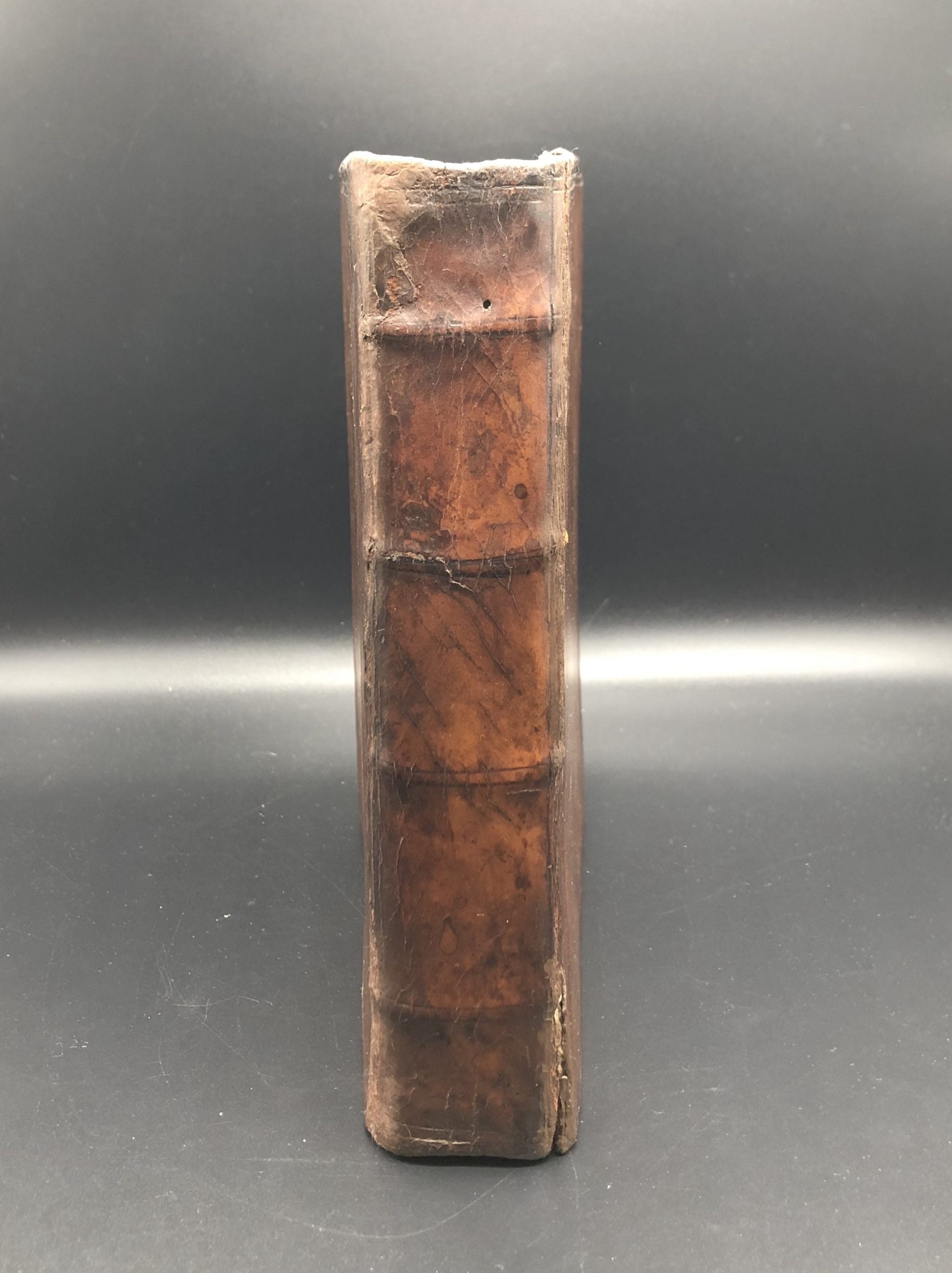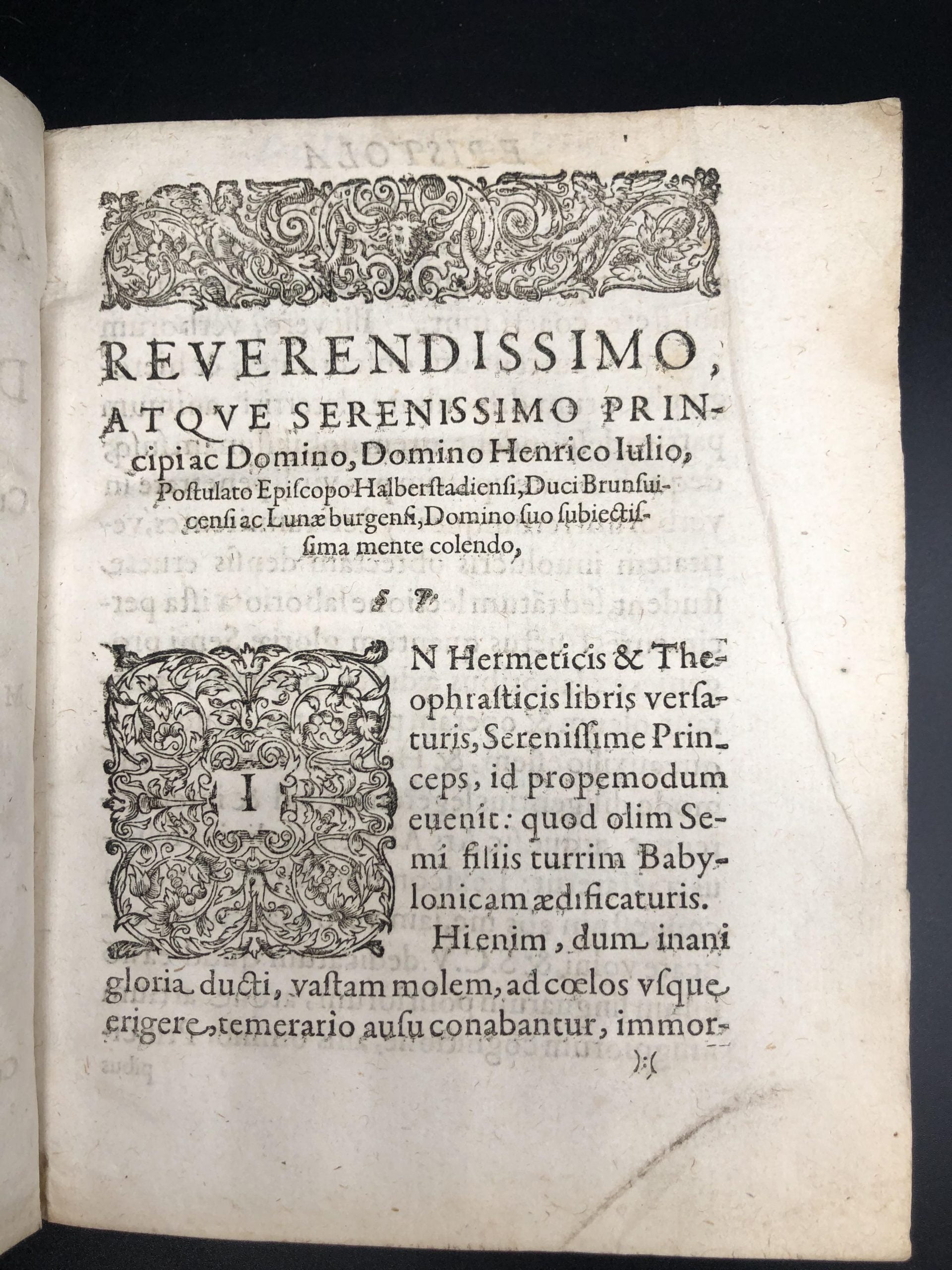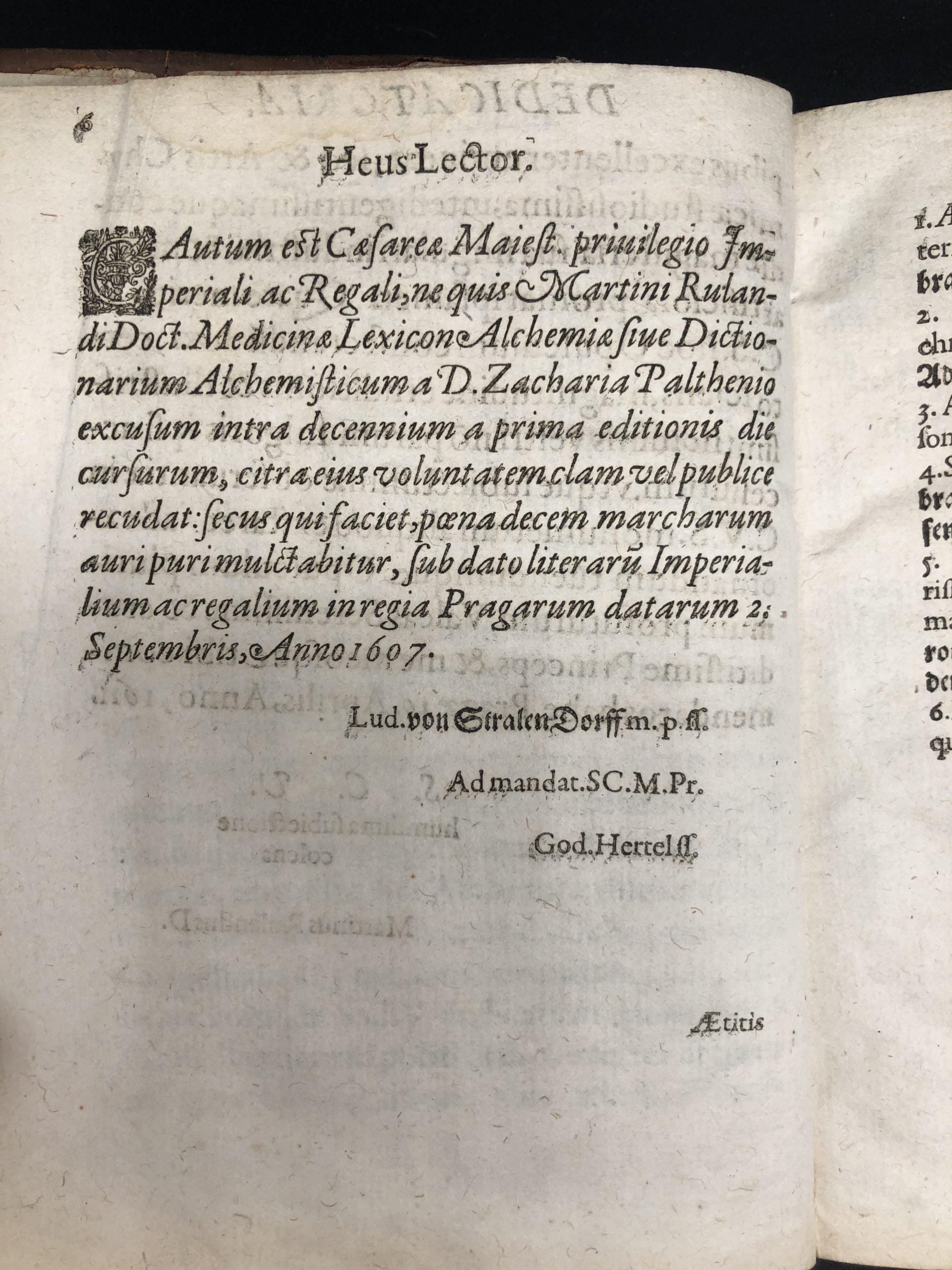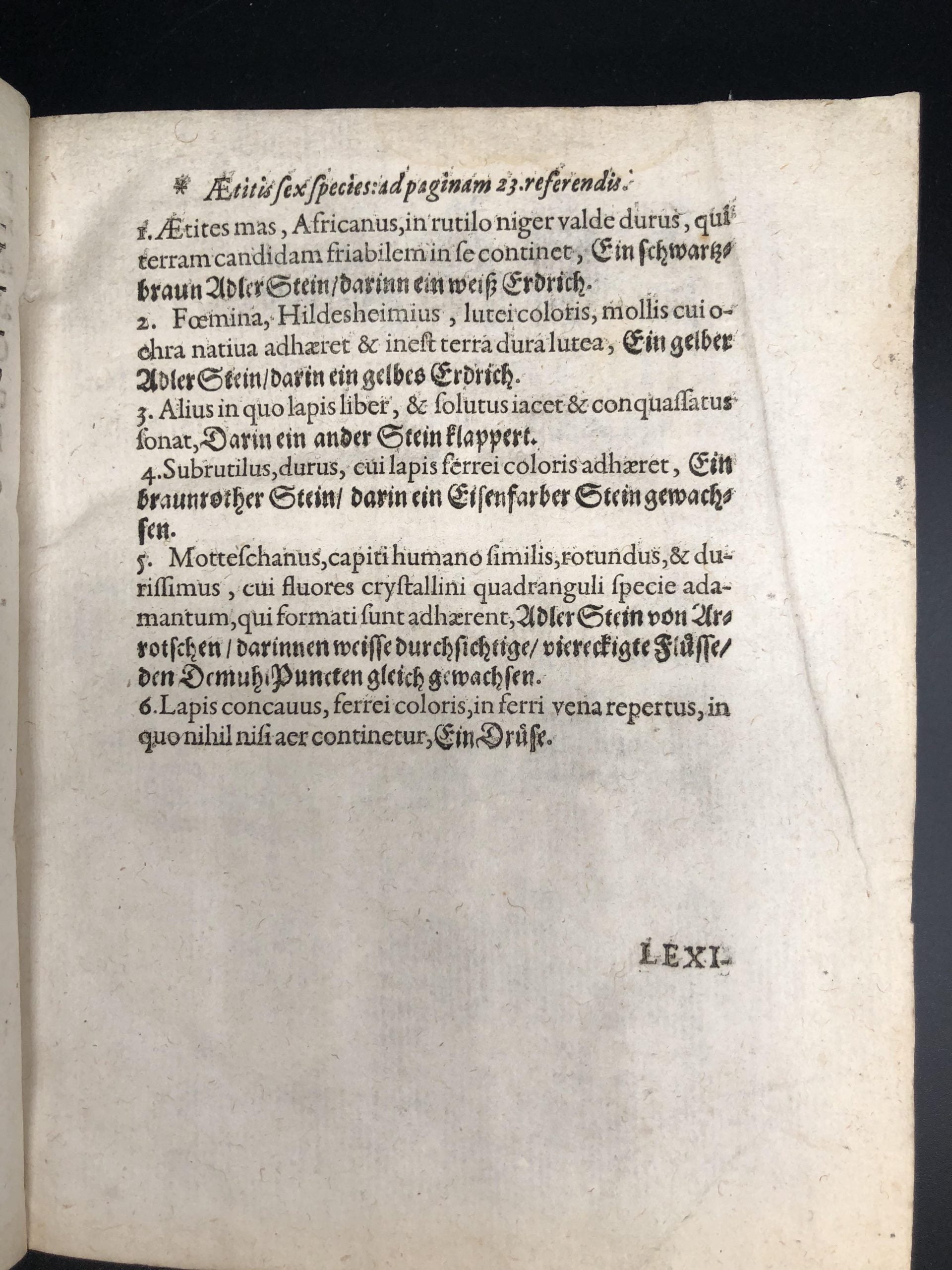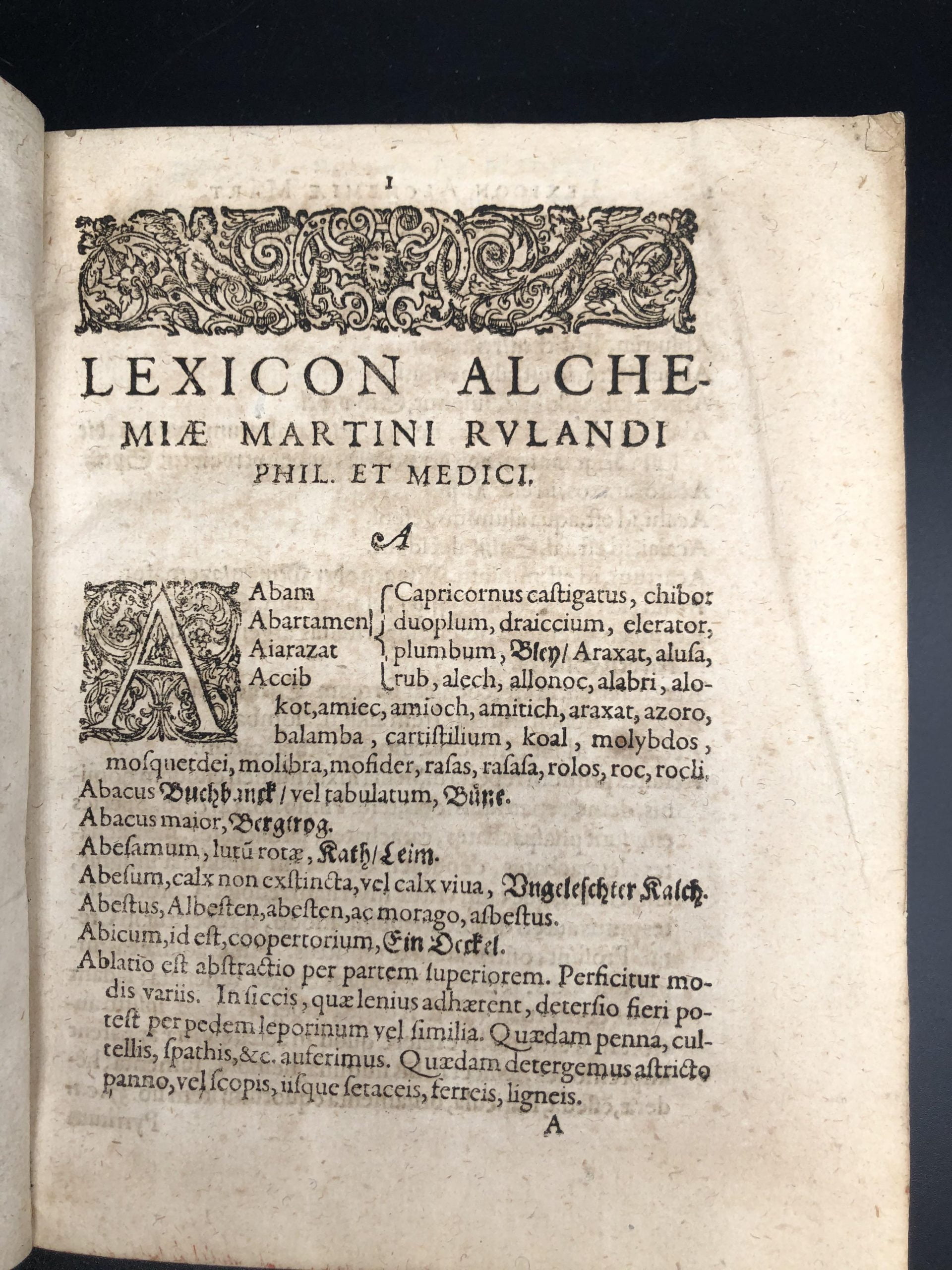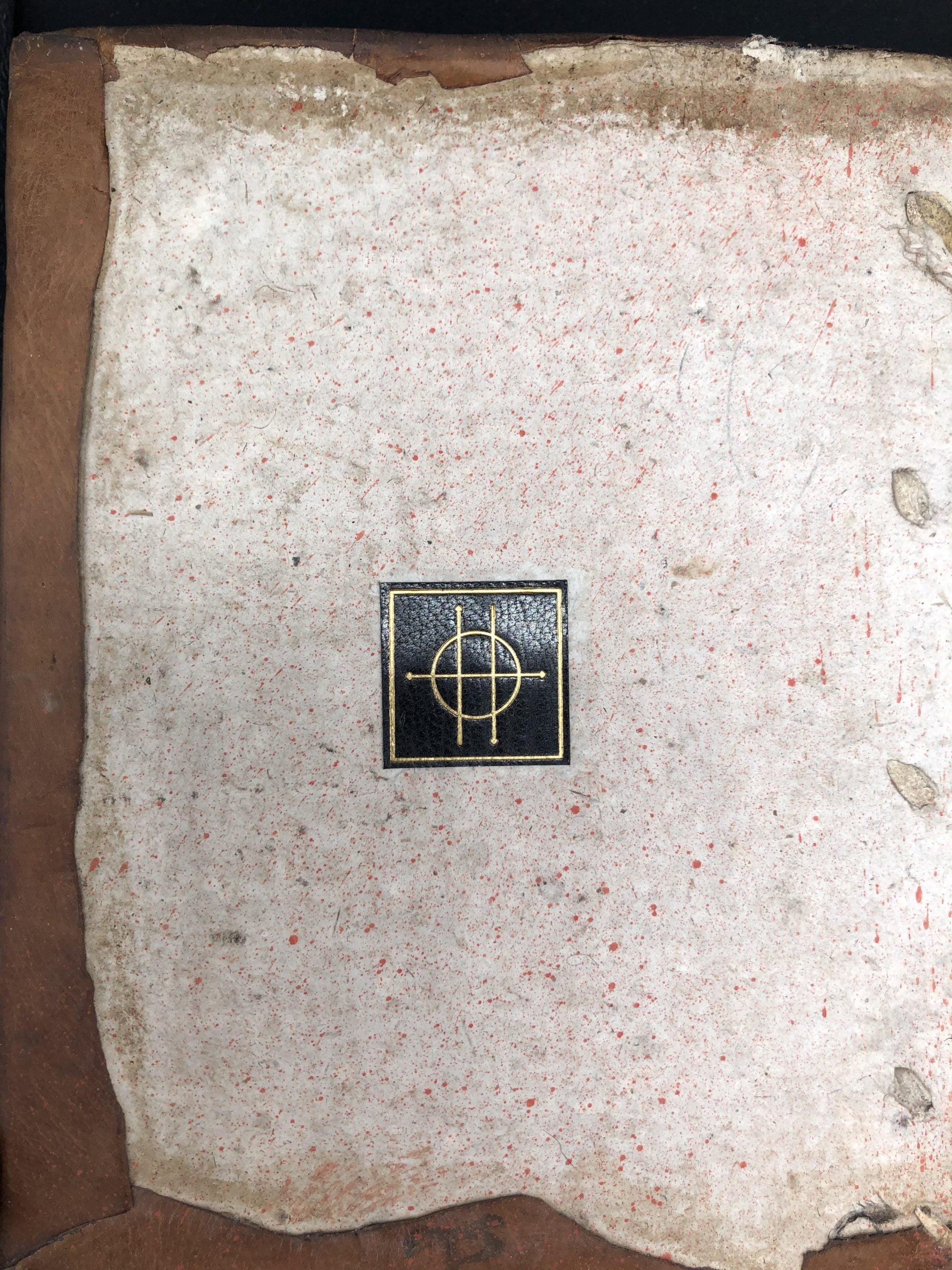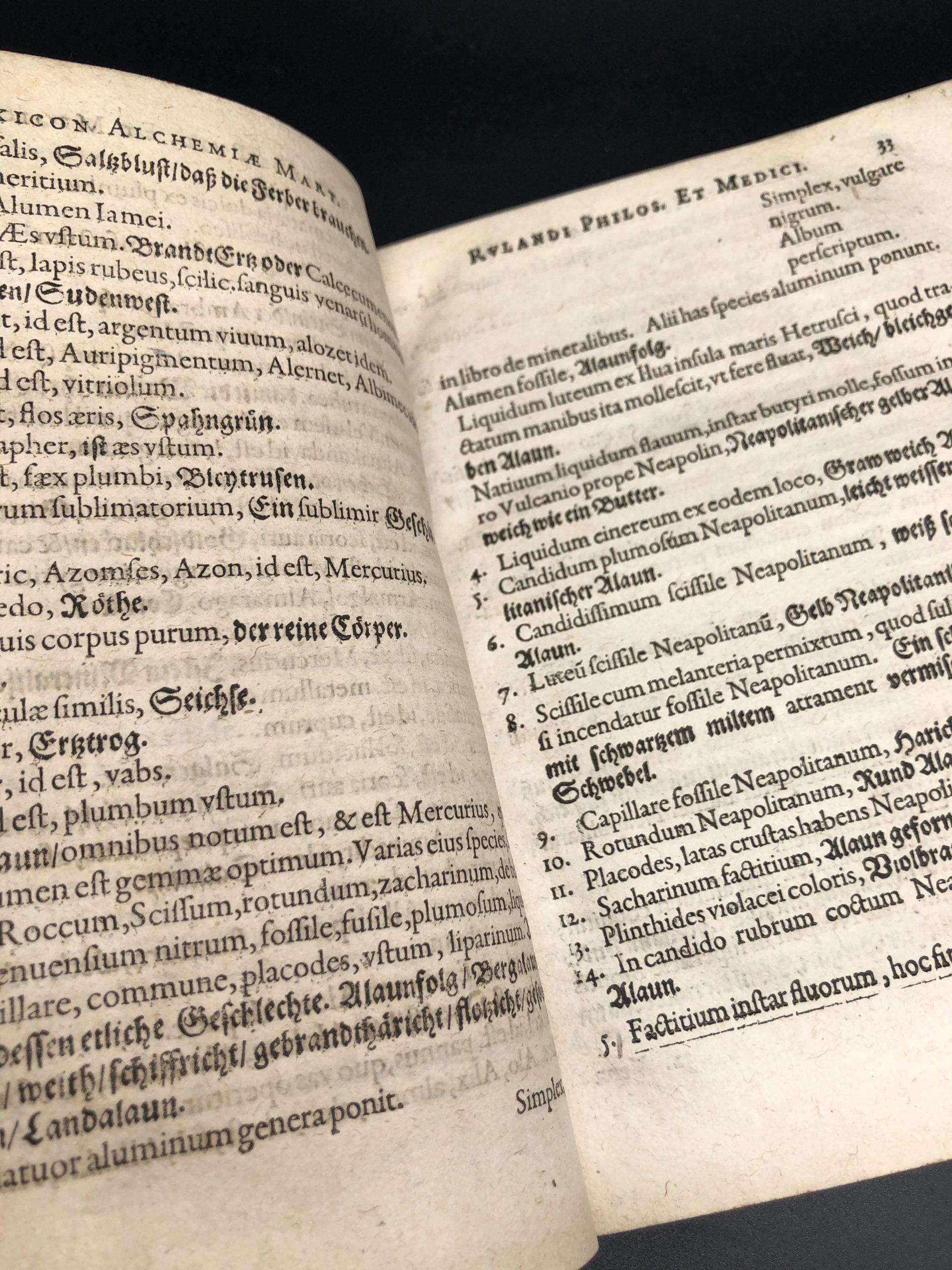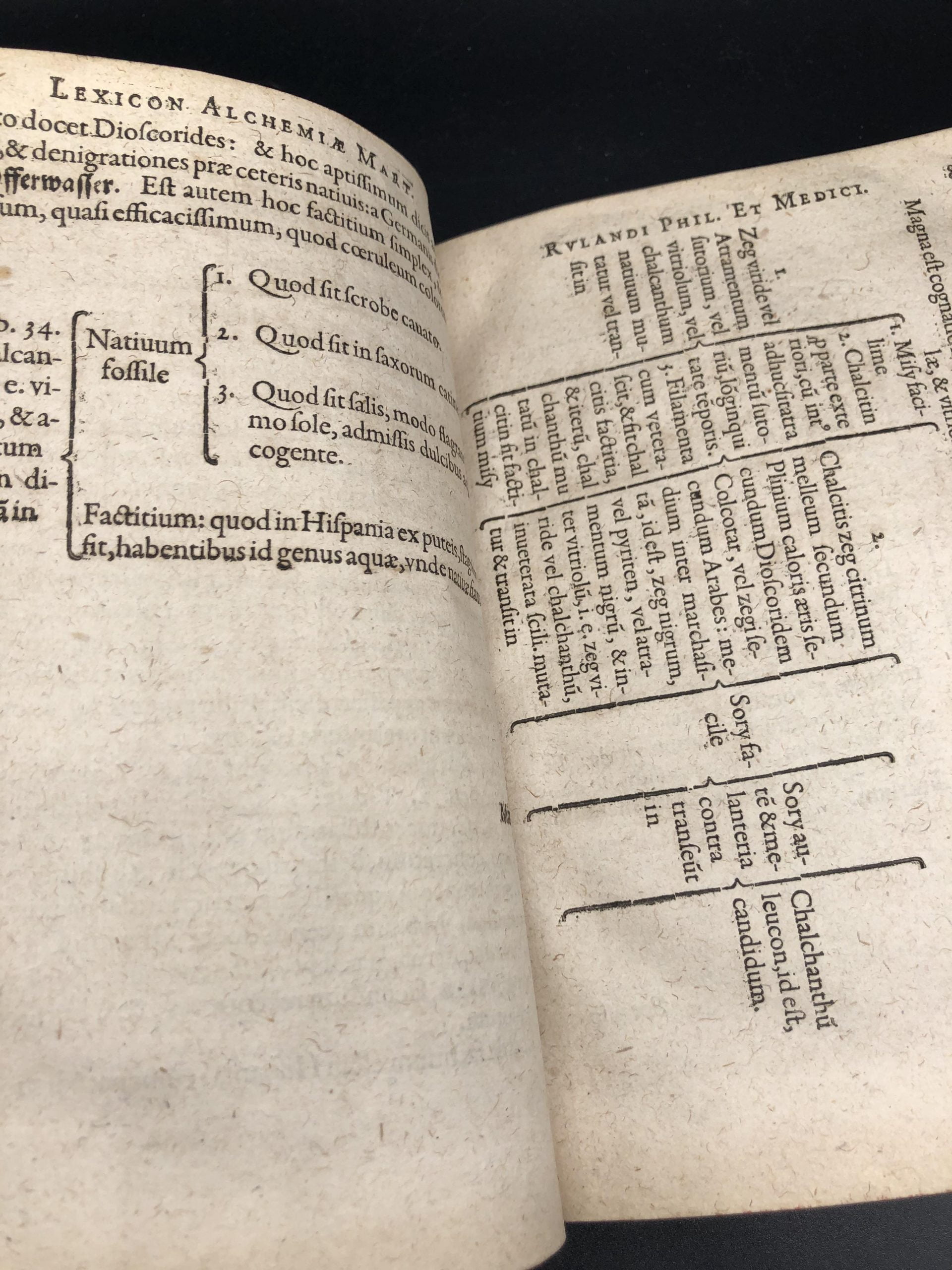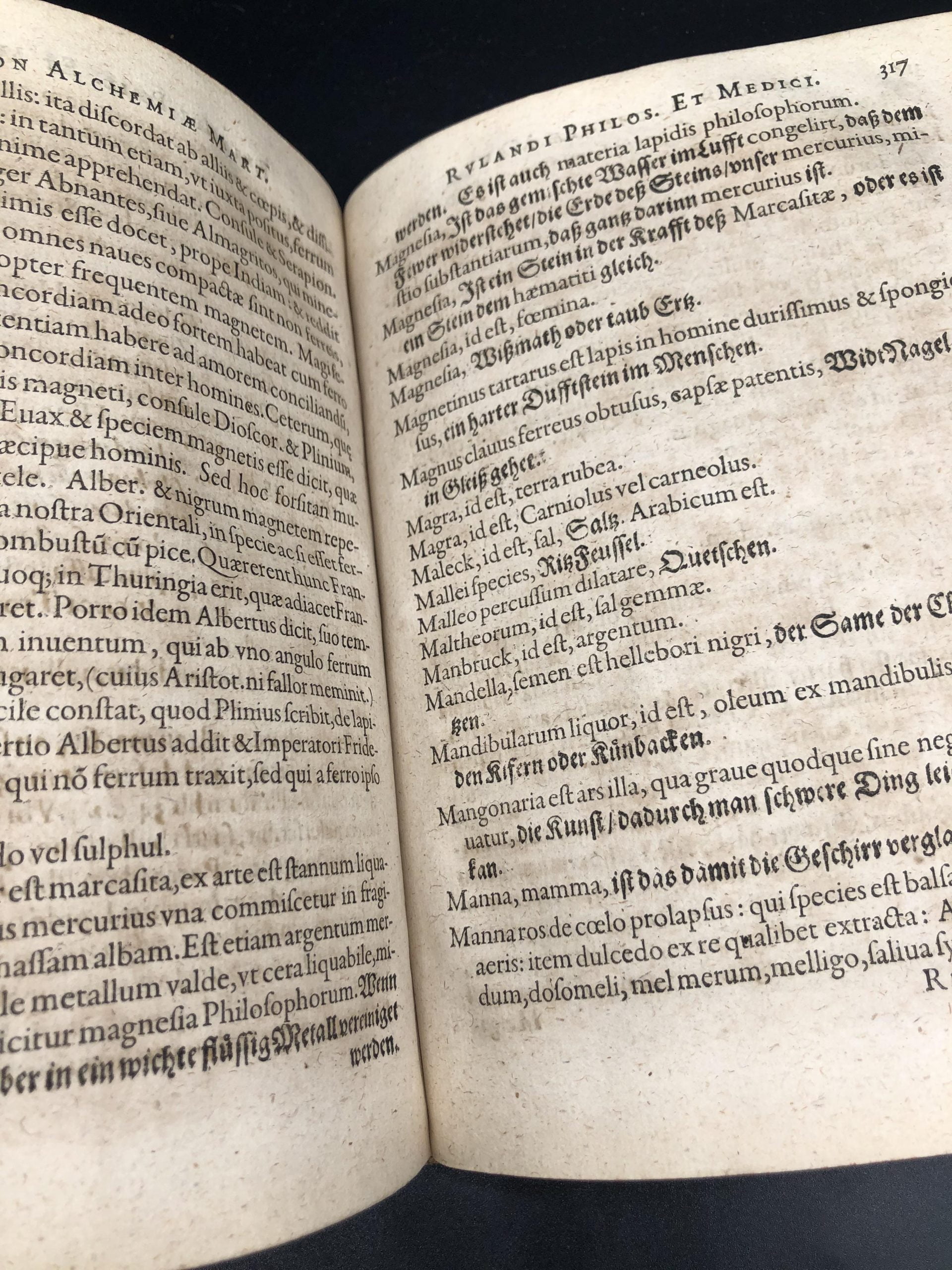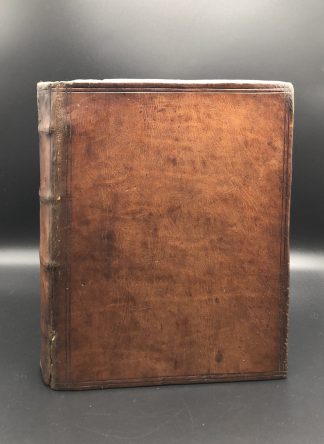RULAND, Martin
DICTIONARY OF ALCHEMY – C17 ENGLISH PROVENANCE
Lexicon alchemiae sive Dictionarium alchemisticum
Frankfurt, Cura ac sumtibus Zachariae Palhenii, 1612£3,750.00
FIRST EDITION. 4to. pp. (viii) 471 [i.e., 487] (i). Roman letter, occasional Italic or Gothic. Unusual woodcut device (triangle with alchemical symbols) to t-p, two small woodcuts of stones and gems, woodcut initials and ornaments. Paper of first gathering softened, occasional light browned (poor paper or poorly dried), t-p a bit dusty, a handful of lower or outer edges uncut. A very good copy in contemporary English polished calf, double blind ruled, raised bands, single blind ruled, joint just split at head and foot (lower repaired), spine a bit cracked, tiny worm hole at head. Modern ownership label inside front boards, occasional early underlinings.
A very good copy of the first edition of this important alchemical dictionary—‘very full, less mystical and more practical than some later [works]’ and ‘useful in explaining early terminology’ (Bolton I, 1041). Martin Ruland the Elder (1569-1611) was a German physician at the court of Rudolf II and an alchemist. Concluded c.1607, his ‘Lexicon alchemiae’ was only published posthumously, as a very detailed Latin-German dictionary of alchemical terms. Most important are the near synonymous definitions of ‘alchemia’, ‘chemia’, and, unusually differentiated, ‘chymia’; Ruland was indeed ‘one source of the linguistic error that facilitated their later [conceptual] separation’ (Newman & Prince, ‘Alchemy’, 47). The work provides a wide variety of words for chemical elements and stones, with all their subcategories, and other substances such as alcohol (of which Paracelsus gave his own interpretation as both a powder and a volatile substances). Other words identify alchemical procedures or phases, e.g., ‘mensis philosophicus’ (the philosophical month), or the time for the completion of putrefaction, coinciding with a lunar cycle. ‘Lexicon’ was known to C.G. Jung who mentioned it his ‘Psychology and Alchemy’ to discuss Ruland’s understanding of ‘meditatio’, an important part of alchemists’ work (Jung, ‘Psychology’, 274). He saw it as ‘an invisible dialogue with one’s inner voice’, which may involve the invocation of God or one’s guardian angel. A very influential alchemical work, of intriguing, though obscure, early English provenance.
Chicago, Mass, Brown (Hay), Yale, Columbia, NYMA, NYPL, SHI, Delaware, Penn, NLM, LC, Oberlin, Miami, Wisconsin, Indiana, Illinois, Missouri, Washington, Florida, Oklahoma and HRC copies recorded in the US. Ferguson II, 302-3; BL STC Ger. C17 R1211; Duveen 520; Wellcome I, 5638. Not in Durling or Graesse. W.R. Newman, L.M. Principe, ‘Alchemy vs. Chemistry’, Early Science and Medicine, 3 (1998), 32-65; C.G. Jung, Psychology and Alchemy (rpt. 1968).In stock


